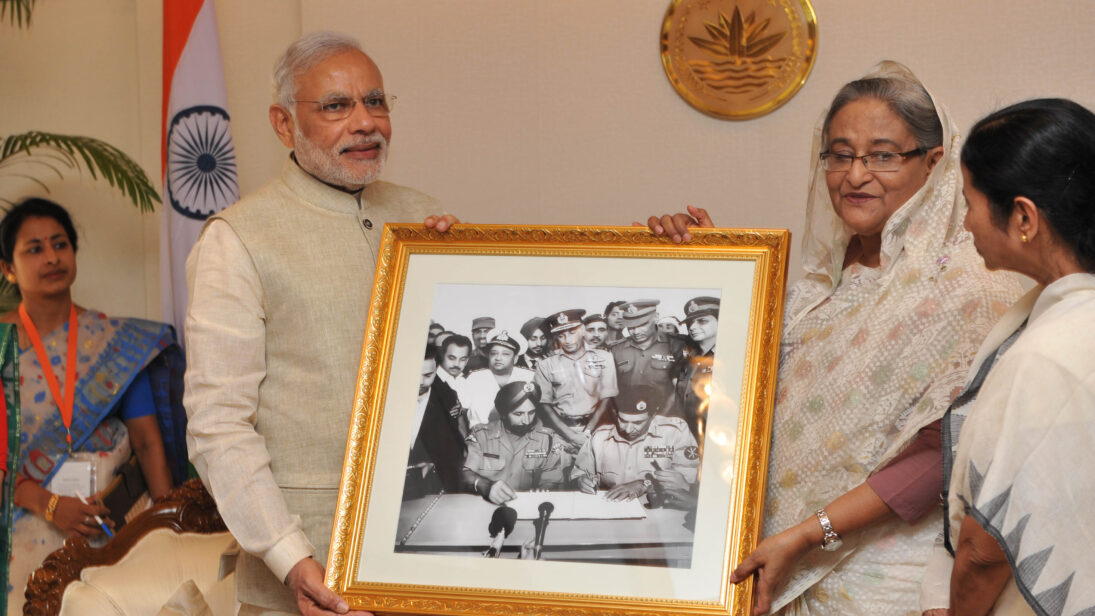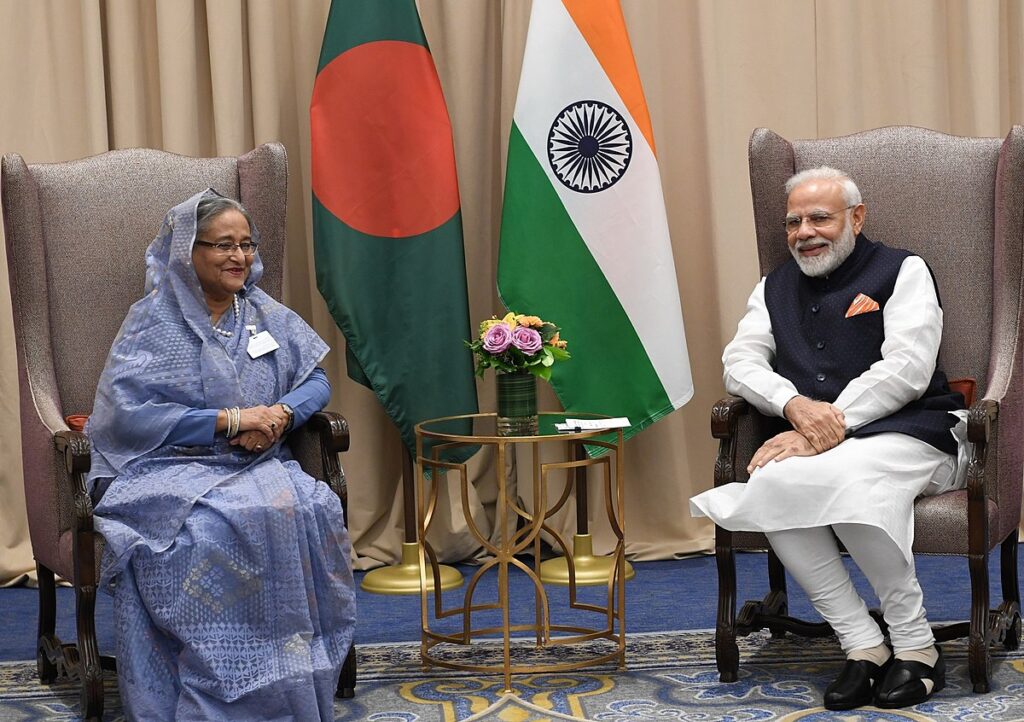
The recent elections in Bangladesh have highlighted the limitations for cooperation between India and the United States in South Asia. The Indian government’s support for Prime Minister Sheikh Hasina’s ruling party has strained the country’s relations with the opposition and raised concerns about democratic norms. The U.S., on the other hand, has critiqued the lack of transparency and electoral irregularities in the polls. These differences of opinion have underscored the challenges facing India and the U.S. in aligning their strategies in the region. This suggests that while both countries seek to counter Chinese influence, their differing approaches hinder effective collaboration..

With increasingly assertive behavior by China in the Indian Ocean Region, India and the United States are finding ways to coordinate, consult, and cooperate in South Asia. Both countries share a strategic interest in pushing back against China, and share values of democracy and aspirations of political stability in the region. However, while their interests are shared, the means to achieve these goals diverge, as evident through the differing approaches of India and the United States to the upcoming Bangladesh election in January, 2024. Much to India’s discomfort, the United States continues to pressure Sheikh Hasina to hold “free, fair, and peaceful elections” in Bangladesh. The run-up to the Bangladesh elections indicates that despite mutual strategic priorities, India-U.S. cooperation in the region lacks common methods to achieve these goals.
The United States’ Double-edged Sword
Post-liberation, Bangladesh’s polity has been dominated by two parties – the secular Awami League (AL) and the Islamist Bangladesh Nationalist Party (BNP). The power center has usually fluctuated between Khaleda Zia of BNP and Sheikh Hasina of AL, with the latter being elected as the Prime Minister in 1996, 2008, 2013, and 2018. Hasina’s subsequent re-elections have often been credited to electoral rigging and malpractices by the U.S. Throughout these years, Hasina’s crackdowns on dissent and opposition have received consistent U.S. criticism and scrutiny. In 2021, the United States sanctioned the Rapid Action Battalion (RAB) of Bangladesh for its excessive involvement in human rights abuses. In September 2023, the United States began to impose sanctions against all individuals undermining the election process in Bangladesh.
The increasing U.S. interest in Bangladesh is an outcome of the rapidly changing geopolitical environment in the Indo-Pacific. With increasing competition from China, the United States asserts to uphold the value-based order through its double-edged strategy: pushing back against China while strengthening democracy and democratic institutions in third countries. Both factors are interlinked: China’s influence and statecraft have weakened democratic institutions in third countries, even as weak democracies and democratic institutions attract Chinese influence and intrusion. Essentially, the United States has expressed interest in capacity-building, democratic strengthening programs, and defense, economic, and investment partnerships with South Asian countries.
China’s influence and statecraft have weakened democratic institutions in third countries, even as weak democracies and democratic institutions attract Chinese influence and intrusion.
In Bangladesh, the United States is attempting to offer an alternative to China. The United States perceives Bangladesh’s “Friendship to all, Malice towards None” policy as beneficial to China, as it has emerged as the top defense supplier to Dhaka and has increased investments by USD $38 billion since 2016. As a result, the United States is showing significant interest in upgrading business relations with Bangladesh, holding regular security and defense dialogues, and attempting to sign key defense agreements. This is in addition to its supply of defense vehicles, infrastructure, financing, and sales.
However, its simultaneous attempts to scrutinize Bangladesh’s democracy have limited the scope and quality of this partnership. Apart from sanctions, the U.S. Ambassador also met victims of state atrocities and members of the opposition party in December 2022. Such scrutiny has called for the Sheikh Hasina government to decrease political pressure on the opposition parties and curb on its human rights violations. On one hand, this has now enabled the opposition and extremist organizations, such as Jamaat-E-Islami (JI), to protest and rally against the government’s policies and democratic crackdowns. On the other hand, this pressure has triggered stark anti-American rhetoric and attraction towards China, for which the United States hopes India can help maintain the balance.

Stakes for India
The mounting U.S. pressure and the opposition’s growing momentum in Bangladesh do not amount to an ideal scenario for India. When in power, the opposition coalition of BNP-JI has had a long history of promoting anti-Indian sentiments, embracing closer relations with Pakistan, and encouraging cross-border terror attacks in India’s fragile and remote Northeast region. Consequently, Hasina’s return to power in 2009 ushered in an era of golden relations between India and Bangladesh. Her government clamped down on extremism, reduced military coups, acted against cross-border terror challenges, improved connectivity projects and trade with India, and acted as a hub to India’s ambitious Act East policy.
India’s trade with Bangladesh increased from USD $3.5 billion in 2009 to nearly USD $16 billion USD in 2022. In addition, India continues to believe that Hasina is sensitive to Indian interests, needs, and concerns — despite her friendly policy towards China. Hence, India fears that the BNP-JI’s victory will undo this progress and increase economic and security threats to the country. Simultaneously, India also fears that the increasing U.S. pressure will push Hasina even closer to China, if she manages to win the 2024 election. Incidentally, New Delhi has cautioned Washington that its excessive involvement in Bangladesh’s domestic politics could be counter-productive.
Despite these strategic calculations taking priority, India’s concerns over the nature of democracy in Bangladesh persist. India sees Hasina as a leader who has restored democracy by managing to crack down on extremists and restricting army personnel to their barracks. But, despite its preference to work with Hasina, India has still demanded free and fair elections in Bangladesh. For this and even the last two elections, it has continued to negotiate with the BNP and Jatiya Party to contest the elections, rather than boycotting them. To not antagonize the United States and promote fair elections, India has also maintained public silence on U.S. action on Bangladesh, and has reduced its interaction with Bangladesh’s civil society and polity as elections draw closer.
The Divergence Challenge
India’s balance between the United States and Bangladesh indicates that both states lack clarity in the nature and extent of their cooperation in the region. To begin with, both the countries largely differ on the means to achieve their strategic priorities and have diverging perceptions of the incumbent government. The United States sees Sheikh Hasina’s government as an increasingly autocratic regime that is growing closer to China, while India sees the same as an entity that has ushered in democracy, regional stability, and limited China’s excessive inroads in the country, despite some democratic flaws.
Second, there is ambiguity about the roles of partnership when the U.S. and India have varying perceptions of governments as in the case of Bangladesh. As China challenges India’s security and status in South Asia, the United States has positioned itself as a supplementary player and has expressed keen interest in promoting Indian leadership in the region. With the growing U.S. actions against Hasina’s government, there are concerns in Delhi that the U.S. is now embracing a leading, rather than supplementary, role in Bangladesh. This is likely to violate the unsaid key terms of India’s cooperation with the United States: respect Delhi’s security and status as the leading power in South Asia.
It is high time that both states set an agenda in their expanding diplomatic engagements and private discussions to seek clarity on priorities, convergences, divergences, and the extent and nature of their regional cooperation.
Finally, the United States and India lack policy-level consultation and cooperation in the case of Bangladesh. The United States believes that it can push Bangladesh on democratic issues, as India will naturally deter the country from growing closer towards China. This thinking not only overlooks India’s limitations to counter China without allies, but also puts an unwarranted amount of burden on India to manage a complex situation not of New Delhi’s making.
Despite similar values and strategic threats, India and the United States have different perceptions, preferred methods, and long-term calculations in the region. The dilemma in Bangladesh indicates how these differences emanate from a lack of common thinking. Having determined the centrality of a strong U.S.-India relationship to both states’ core interests, it is high time that both states set an agenda in their expanding diplomatic engagements and private discussions to seek clarity on priorities, convergences, divergences, and the extent and nature of their regional cooperation.
Also Read: The Case for Washington’s Strategic Engagement in South Asia
***
Image 1: PM Sheikh Hasina giving PM Modi Poster via Flickr
Image 2: PM Narendra Modi meeting PM Sheikh Hasina in New York via Wikimedia Commons
India and the United States are seeking to coordinate and cooperate in South Asia in response to China’s assertive behavior in the Indian Ocean Region. Both countries share a strategic interest in countering China’s influence and promoting democracy and political stability. However, their approaches diverge, as seen in the differing views on the upcoming Bangladesh election. The United States has pressured Sheikh Hasina to hold free and fair elections, while India fears the opposition coalition’s victory could increase anti-Indian sentiments and threats to its security. There is a need for clarity, consultation, and cooperation between India and the United States to effectively address regional challenges.
Hashtags: #Bangladeshs #Elections #Show #Limitations #IndiaU.S #Cooperation #South #Asia #South #Asian #Voices

Hgvt.edu.vn trang tổng hợp kiến thức giáo dục, công nghệ, đời sống. Bạn có thể tự đánh giá nội dung và trở thành cộng tác viên của chúng tôi



 Hgvt.edu.vn trang tổng hợp kiến thức giáo dục, công nghệ, đời sống. Bạn có thể tự đánh giá nội dung và trở thành cộng tác viên của chúng tôi
Hgvt.edu.vn trang tổng hợp kiến thức giáo dục, công nghệ, đời sống. Bạn có thể tự đánh giá nội dung và trở thành cộng tác viên của chúng tôi
Leave a Reply